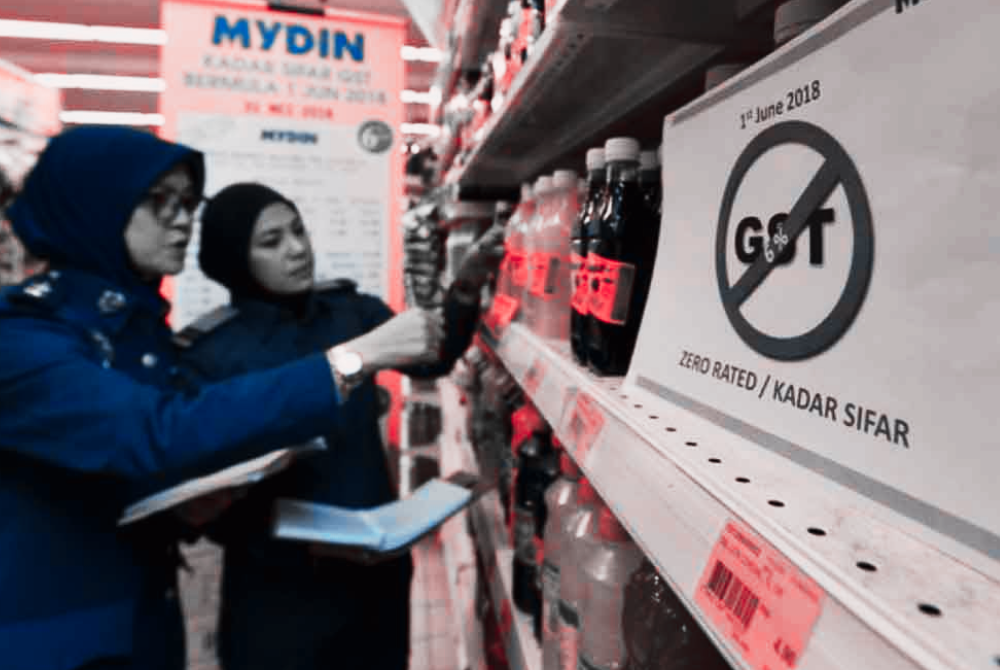Flawed rollout crippled potential benefits of GST - Business leader
Lack of tax literacy blamed for GST consumer frustration

SHAH ALAM - Goods and Services Tax (GST), initially introduced as a comprehensive tax reform aimed at enhancing tax compliance and reducing corruption, has not lived up to its potential due to flawed implementation.
Reflecting on a 2016 meeting with the Customs Department, Selangor Indian Chambers of Commerce Datuk Dr Shanmuganathan recalled warnings about businesses exploiting the GST system, a concern that in his view materialised following the tax's rollout.
"GST touted for its capability to streamline tax compliance, reduce corruption, and significantly bolster government revenue.
"However, GST's suboptimal application and the subsequent challenges the populace faces due to the lack of clear guidelines and enforcement were its main downfall," Shanmuganathan said in the Sana Sini podcast, which aired recently.
Echoing Shanmuganathan's sentiments, political analyst Professor Datuk Dr P. Sivamurugan questioned the shift back to Sales and Service Tax (SST), highlighting GST's advantages in tax enforcement and its significant contribution to national revenue — an estimated RM20 million annually.
Shanmuganathan suggested that instead of outright removal, a more prudent approach would have been to adjust the GST rate, perhaps reducing it to foster better compliance and mitigate inflationary pressures post-SST revival.
The transition back to SST, as Shanmuganathan pointed out, sparked a noticeable price increase, highlighting the importance of robust enforcement and clear communication to prevent businesses from taking undue advantage.
"The lack of effective engagement between enforcement agencies and the public contributed to consumer confusion and compliance issues," Shanmuganathan said.
Former MIC Youth chief Senator Datuk Sivarraajh Chandran highlighted a critical point during the GST era — nearly 3,000 essential items were exempt from tax, a fact overshadowed by enforcement and communication lapses.
He and Shanmuganathan both stressed the broader issue of tax literacy in Malaysia, with the latter invoking the legal principle of "caveat emptor" to underline the responsibility consumers bear in making informed purchases.
"General public's reluctance to engage in due diligence before making purchases is a worrying trend.
"This mindset, coupled with a widespread lack of awareness about taxable and non-taxable items, has led to a cycle of frustration and complaint among consumers, often vented through social media platforms," Shanmuganathan added.
To this, Sivarraajh noted the role of social media in amplifying consumer grievances, sometimes unfairly, and highlighted its influence in shaping public perceptions of tax policy.
"The platform's power to disseminate information rapidly has turned it into a double-edged sword, where misunderstandings can spread just as quickly as valid concerns," Sivarraajh said.
Reflecting on the political implications of GST, Shanmuganathan speculated that a strategic reduction in the GST rate by former prime minister Datuk Seri Najib Razak could have altered the political landscape, potentially securing his re-election.
Earlier this year, Prime Minister Datuk Seri Anwar Ibrahim acknowledged that GST remains the most transparent and efficient taxation system.
He said the government “isn’t in a hurry to reinstate the tax” that was abolished in 2018 by the Pakatan Harapan government.
Download Sinar Daily application.Click Here!















